Psychiatrist Cristian Rück: "A zero vision for suicide is not possible"
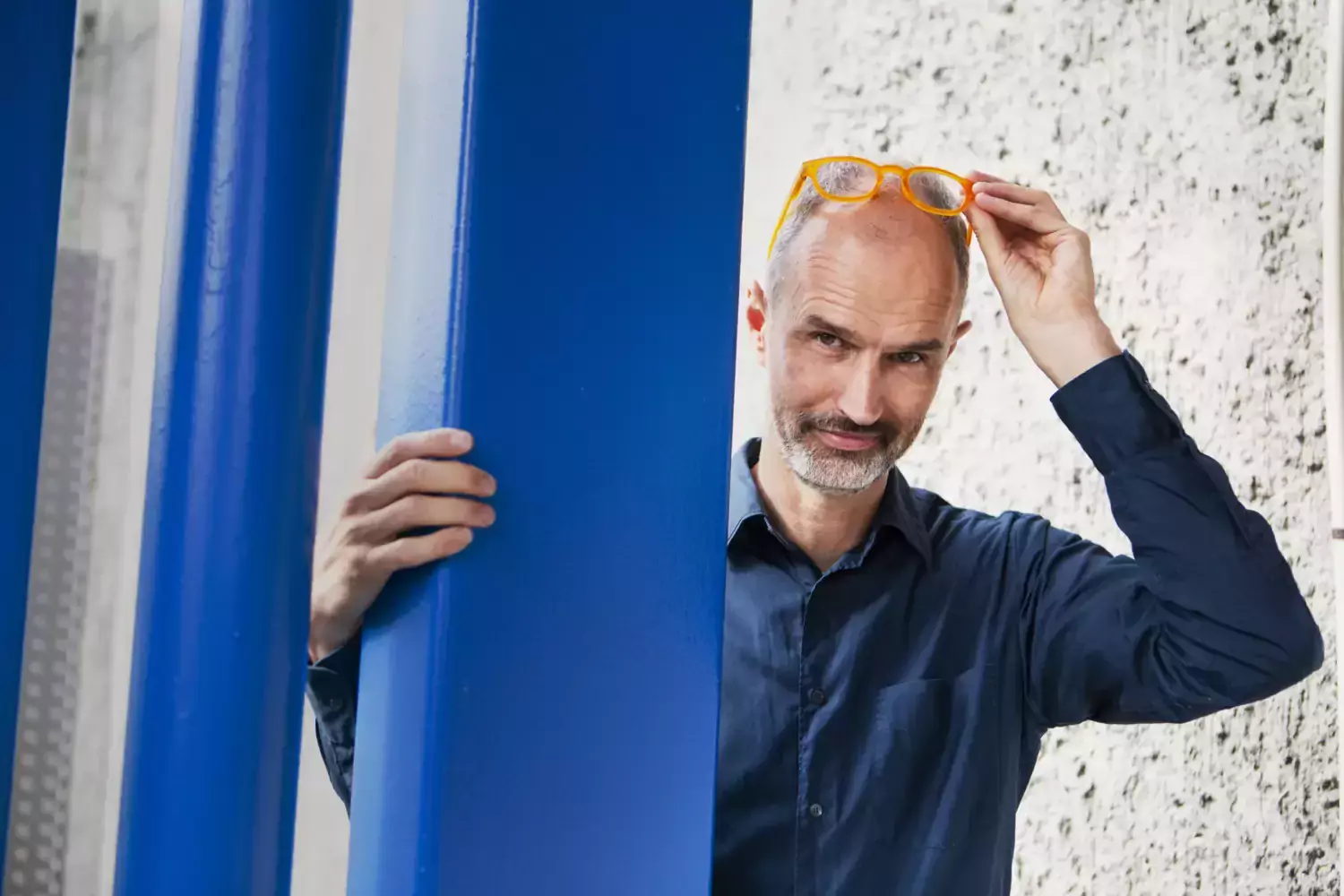
Thanks to the research conducted by Christian Rück and others there is currently research on all compulsive related disorders. He is now venturing into a perhaps even more difficult and important task: Suicide prevention.
Text: Cecilia Odlind, first published in Swedish in Medicinsk Vetenskap, No 3/2023.
A person who has lived with obsessive compulsive disorder for fifty years can now be free of this diagnosis with the help of a 12-week internet based cognitive behaviour therapy, CBT. For the patient, this may mean going from being entirely trapped in their own compulsive behaviour or thoughts to living a functional life.
"Sweden has acted as somewhat of a cradle of internet based CBT that has developed over the past 10-15 years. Having helped contribute to this development, which has resulted in great improvement for many patients, is cool", says Christian Rück.
His own research in the area was started together with his first doctoral student Erik Andersson when they studied OCD, obsessive compulsive disorder. Ten years ago this condition was considered a bit too complicated to be treated with internet based CBT. However, they proved the opposite.
"The great thing about internet based therapy is that it's available nationwide and any time around the clock that suits the patient best. In other words, you can get a luxury meal at McDonald's hours. It doesn't matter if you live in the city or in the countryside, anyone can seek and receive treatment", says Christian Rück.
Since then, his research team has grown and the research has expanded to include treatment and cause for a number of compulsive-obsessive disorders, such as body dysmorphic disorder (also called self-perceived ugliness), hoarding disorder, and tics.
More precise psychiatry
"Today we even have a treatment for the rare condition called olfactory reference syndrome, when you believe that you smell bad, which can be very debilitating and limiting. That means that we now have treatment to offer all OCD spectrum disorders, which is fantastic", says Christian Rück.
One goal is also to find a better way to select the right treatment for the right patient right away, based on individual data, regardless of whether the treatment will be internet based or a physical meeting between the therapist and the patient.
"We refer to this as precision psychiatry and that means that we should, for example, be able to predict if we need to add extra resources to the treatment to obtain an effect or vice versa when psychological treatment is not expected to be that useful. The point is that the patient should avoid having to go through a treatment that is doomed to fail", he says.
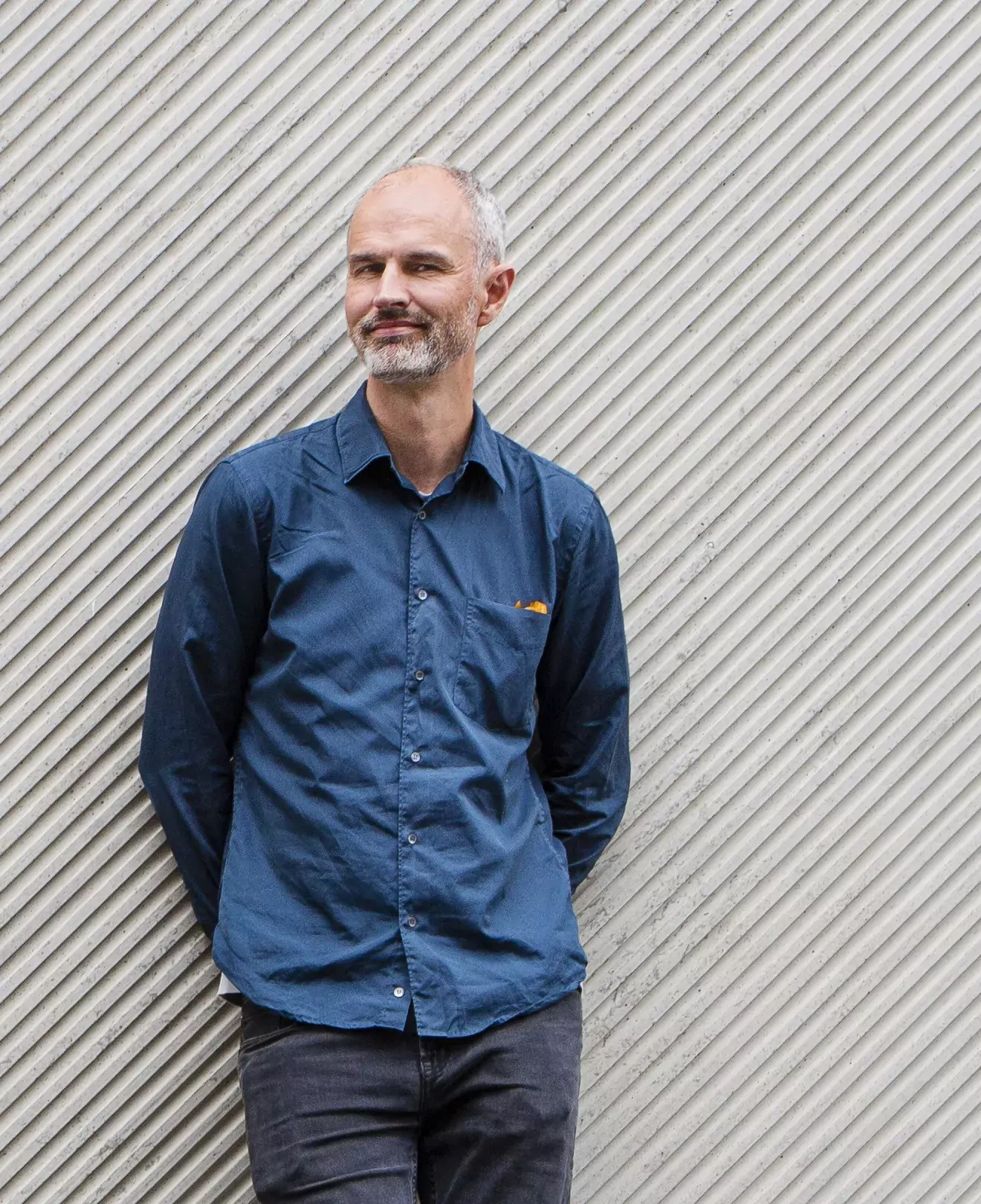
A relatively new trail in Christian Rück's research involves the prevention of the perhaps worst consequence of mental illness, namely suicide. He has launched a large project, Saving Lives, which is being conducted in collaboration with other research groups at Karolinska Institutet. The long-term goal is to reduce the number of suicides. However, predicting who is at a risk of committing suicide is difficult.
"Every day, thousands of assessments are done of risk of suicide among patients in psychiatry, in Stockholm alone. What we want to do is detect high-risk patients to prevent as many suicides as possible. However, the precision is poor, he explains.
Among individuals who die of suicide roughly half have been assessed as low risk and out of those who are assessed as extremely high risk, very few die.
"Since our assessment is rough, quite a lot of people will be institutionalised unnecessarily. However, it's not easy to study this scientifically since when we assess that the suicide risk is very high we also administer actions to reduce the risk, so therefore it's hard to know what would have happened if we had not hospitalised the patient", Christian Rück explains.
Today, risk assessments are based on an interview with the patient and their family members.
"But we want to create better risk models based on more data, for example genetic data, which together with other types of data can produce higher precision", he says.
Information from mobile phones could also be used, he thinks, for example how people move, what they are searching for and writing. In addition to this, society can take actions that are not based on prediction on an individual level, but more generally prevents risky situations.
"Such actions have already been taken, such as making it more difficult for people to get a hold of toxic medications, building railings at bridges etc. But more risky situations could be identified and prevented", he says.
An active communicator
Christian Rück is also an active debater and writer who contributes in the social debate. He tweets, instagrams, lectures, answer questions in the newspaper Dagens Nyheter, and other things.
"I think a lot of researchers are reluctant to make a public statement out of fear of saying the wrong thing, I've felt that way too. I remember how anxious I was the first time I was going to participate in a podcast. But over the years I have gained a lot of practice, and it especially made a big difference when I started doing my own podcast*", he says.
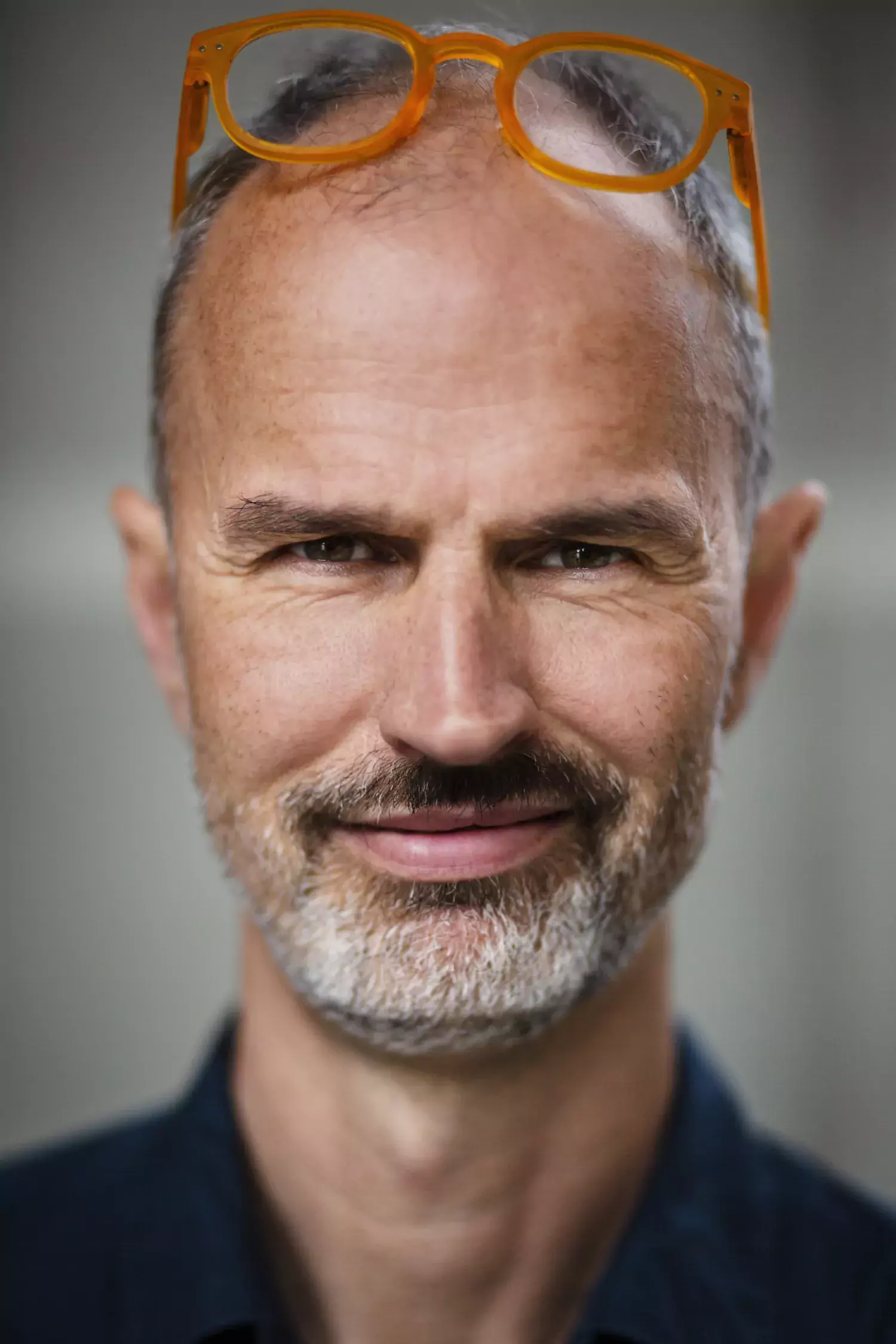
In recent years, Christian Rück has among other things spent time on writing books. His first book is called Olyckliga i Paradiset and was released in 2020. Here, he problematized the illusion that we are living in a highly stressful time and that an increasing number of people feel bad. In other words, he tried to understand the place of the psychiatric diagnosis in contemporary times. The book was very well received and has resulted in many invitations to speak, visit podcats and debates on, among other things, mental ill health (a vague term that Christian Rück would prefer us to stop using) and the diagnosis exhaustion ("it lacks a scientifically based definition). Nowadays, Christian Rück sometimes comes across as provocative when he has a opinion that differs from that of others. In the upcoming book "Ett liv värt att leva", which is set to be released in January 2024, he is among other things critical of the zero suicide vision, which was launched in 2008.
"The zero vision sounds all well and good and to criticise it is a delicate issue. But to completely prevent every suicide - as if it would even be technically possible to prevent all cars and thereby achieve a zero vision for car accidents - is not possible", says Christian Rück.
To implement a zero vision in an area where it is impossible to achieve runs the risk of making family members and care staff feel that they have done something wrong if someone dies from suicide.
"The way I see it, the zero vision makes us so fixated on making predicstions that we risk missing the possibility of prevention. If the risk is assessed as high we should also ask ourselves how we can help make the risk smaller. What has lead to the high risk? A divorce, unemployment? How can the individual's situation be improved so that you reduce the risk?
While he has been writing he has also read several stories by people who have survived suicide and who say that they regret it, for example Kevin Hines who jumped from the Golden Gate Bridge in 2000.
"He regretted it the moment he jumped. He was lucky enough to survive and has since then been on a mission for suicide prevention, among other things a safety net on the bridge", Christian Rück explains.
How many of those who have taken their own lives would had begun to think differently had they lived can never be answered.
"But we do know that few people who have attempted to commit suicide end up actually taken their own life later. To say that "if you really want to kill yourself there is nothing we can do" is completely wrong. Relatively small actions can have an effect. Putting up an additional railing on a bridge seems to have a protective effect, even if the railing can actually be climbed", he says.
The fact that his research can benefit people's lives in a concrete way is meaningful to Christian Rück.
"My job is very meaningful. Half of all sick-leaves are due to psychiatric reasons, while a strategic venture into this area does not exist. Working on psychiatric issues in our society feels very meaningful", he says.
*)The podcast was called "What's the point...?" and was done together with Alex Kossek. The last chapter was released in 2017 and all chapters are still available to listen to. It is in Swedish.
About Christian Rück
Title: Psychiatrist at Psykiatri Sydväst and professor at the Department of Clinical Neuroscience, Karolinska Institutet.
Age: 52
Family: Three children
How I relax: I'm not a particularly relaxed person, unfortunately. Watch IFK Norrköping play football perhaps? But that's actually a pretty nervous activity.
The most unexpected research findings: That we have demonstrated that so many psychiatric conditions are treatable with internet based CBT, even where the patient has less awareness of their illness, such as OCD or body dysmorphic disorder (self-perceived ugliness). Today it is widely accepted but it wasn't 10-15 years ago.
Best research quality: Energetic, I have a drive to move forward. But I also believe that I have the guts to ask uncomfortable questions. And I have an ability to formulate the most vital unanswered questions in a good way.
Christian Rück about...
...daring to fail: I think that's a key factor in making a breakthrough. Many researchers continue along the same path where you can safely present results in order to obtain the same funding, but it can bocome very uninteresting.
... a researcher's self-deception: We often say that results will come in around five years but they rarely do. That's enough to appease the grant funding bodies. And to maintain work morale: You need to believe in what you are doing!
... euthanasia: That's a more complicated form of suicide that is more accepted. For example, in Belgium, euthanasia is performed on young patients. To me that's chocking, but at the same time it feels in line with our time.
... stress: We marinate children and young people in a conceptual world where stress is dangerous. However stress can also be a positive thing. We need to equip young people to withstand stress instead of scaring them.
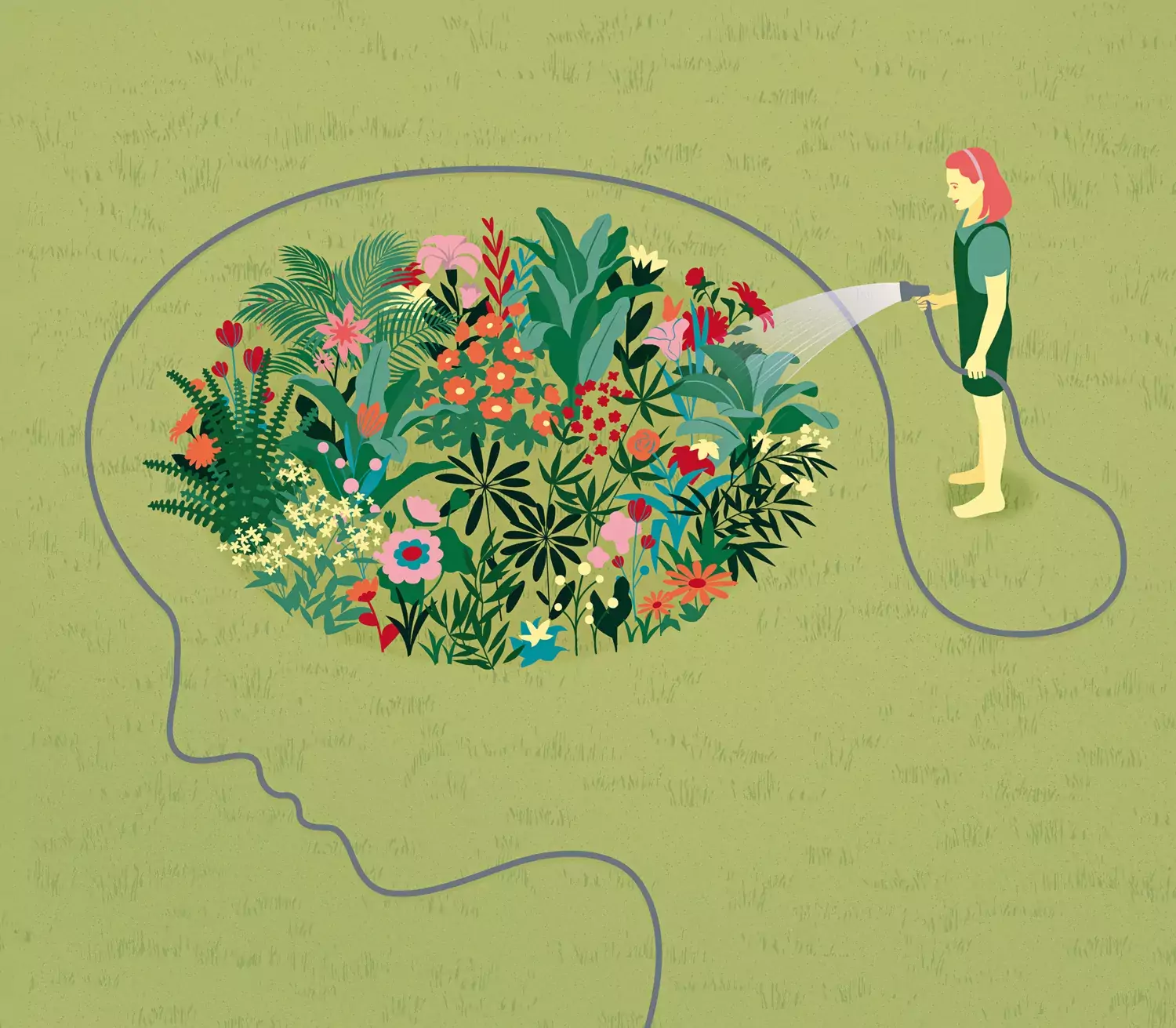 Photo: Joey Guidone
Photo: Joey GuidoneSpotlight on suicide prevention
Approximately 1,500 Swedes commit suicide each year. Although major efforts are being made to save more of those who see death as the only way out, much remains to be done.
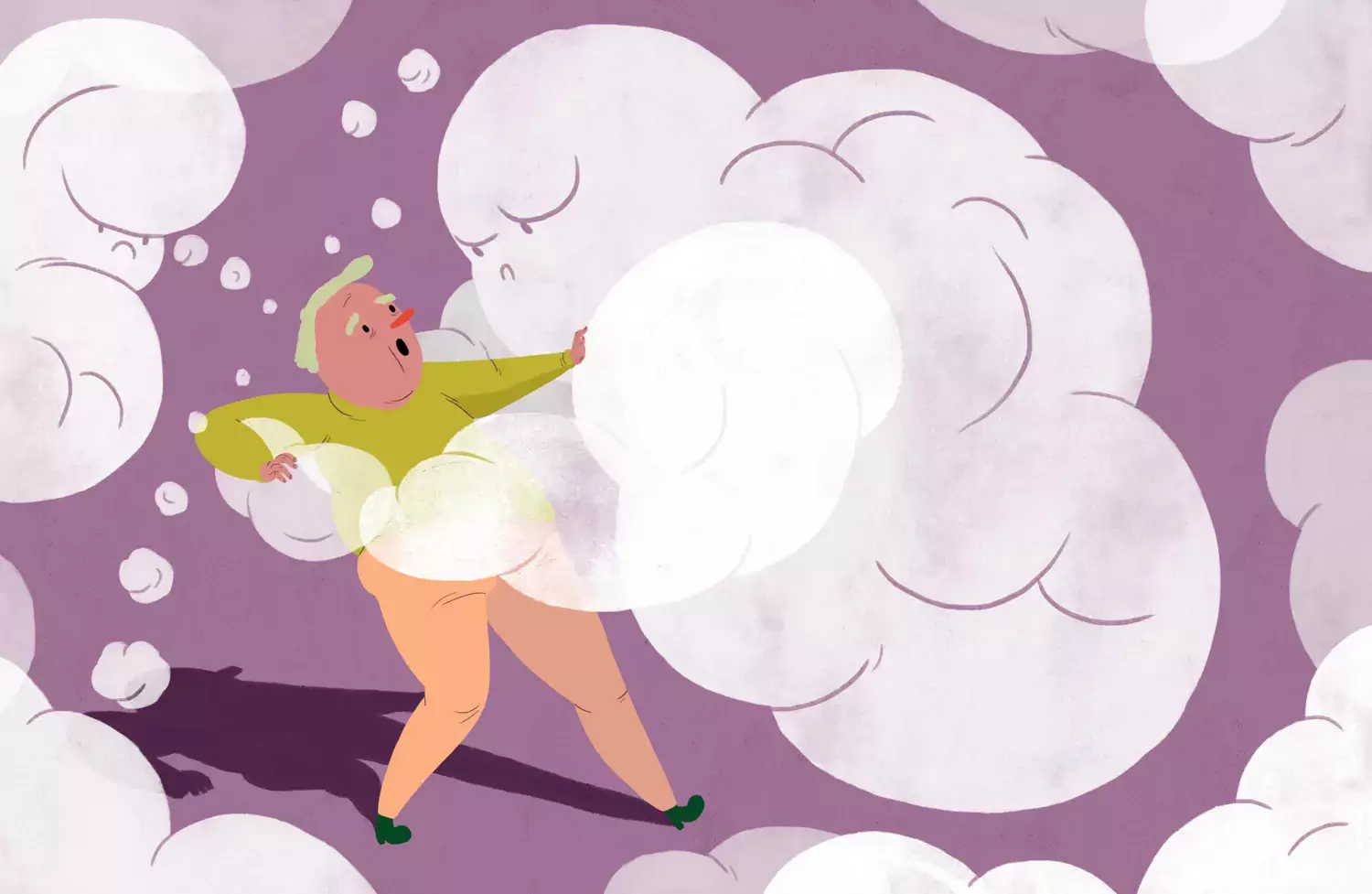 Photo: Emma Hanquist
Photo: Emma HanquistSpotlight on OCD
People with obsessive-compulsive disorder (OCD), have intrusive and anxiety-provoking thoughts, such as fears of contamination or that harm will come to a loved one, which are associated with compulsive acts or rituals. Such obsessions and compulsions are distressing, time consuming and seriously impair everyday life.
